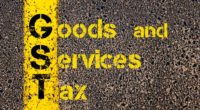The indirect tax department initiated investigations against a few crypto exchanges for checking the Good and Services Tax (GST) evasion. It is expected that these investigations may also set a precedent around the categorisation of crypto assets for taxation.
The experts have long debated regarding the categorisation and tax treatment of cryptocurrencies. They are yet to agree whether a cryptocurrency is a currency, a commodity, a service, or something else.
The DGGI has initiated investigations against all top exchanges, including WazirX, CoinSwitch, Kuber and CoinDCX, to check whether they are paying GST on their transaction fees or margins.
GST on cryptocurrency has been a subject to dispute from taxability and valuation perspectives. Although the interpretation is ambiguous, crypto exchanges comply with the law and pay GST voluntarily. However, they seek clarity as they don’t have any crypto-specific provisions in the GST and income tax laws.
The tax department plans to charge GST at 18% on the margins as the services provided by the exchanges are similar to commodity exchanges and other intermediaries. Many exchanges have started stating that the issue was mainly around compliance and accepted the department stand.
However, they need clarity on whether they can be treated similarly to currency, equity, gold, technology, services, or like a lottery. The clarity is much needed as the income tax rates on returns from different assets are separate and range from 10% to 35%. Also, depending on the category, the GST rates could vary from nil to 28%.
The Blockchain and Crypto Assets Council (BACC) states that the department wants to verify whether the brokerage/commission earned by exchanges has been charged a GST of 18% or not. Also, the BACC agrees to the department stand of 18% GST on brokerage/commission.
This is not the first time the cryptocurrency has found itself in the crosshairs of the tax authorities. In 2017, tax investigations were carried out where the department asked top management of some cryptocurrency exchanges to explain their business model and how much indirect tax was being levied.
This investigation comes at a time when there is regulatory ambiguity around cryptocurrency. The government is discussing with stakeholders whether it should completely ban cryptocurrencies or be allowed in a limited way with the Reserve Bank of India (RBI) as a regulator.
For any clarifications/feedback on the topic, don’t hesitate to get in touch with the writer at dvsr.anjaneyulu@cleartax.in
DVSR Anjaneyulu known as AJ, is a Chartered Accountant by profession. Loves to listening to music & spending time with family and friends.





